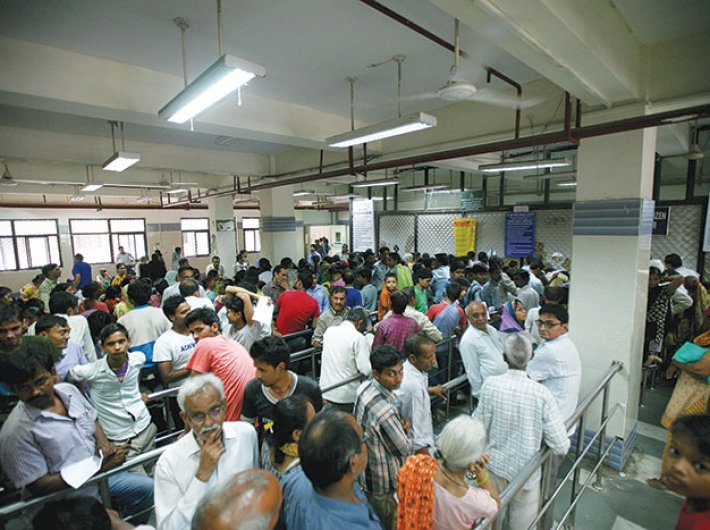Health, like education, job and information, will become a matter of right soon. A draft policy advocates a National Health Rights Act which will make “denial of health” an offence. It also proposes making health a fundamental right and suggests raising public health expenditure to 2.5 percent of GDP from the current 1.2 percent.
The draft has been pending for the past two years and it was placed in public domain for comments in January last year, reports the Times of India
“We have already circulated a cabinet note. It should be placed before the cabinet in another week or 10 days,” a senior health ministry official was quoted as saying.
If health becomes a fundamental right, healthcare will not put people into financial distress. India has among the highest out-of-pocket (OOP) expenditure on health, one of the key reasons pushing people into poverty.
The draft policy proposes that the centre, in coordination with states, should use the legal clause available under the Clinical Establishments Bill and ensure health as a fundamental right.
The draft also calls for making available universal health coverage, reducing maternal and infant mortality, as well as making free drugs and diagnostics available at least in public healthcare facilities in the country. It suggests that the centre must amend laws to align them with the current healthcare scenario.
It also proposes a review of the Mental Health Bill, the Medical Termination of Pregnancy Act, the surrogacy law and the food and drug safety law.
In 2010, Assam became the first state to enact a legislation declaring right to health as a right of every resident of the state. The Assam Public Health Bill, 2010, makes it mandatory for all government hospitals as well as private health establishments to extend free services for 24 hours to a patient seeking emergency treatment.
The Act guarantees the people’s right to health and makes it obligatory on the part of the government to provide access to healthcare services to every citizen and ensure that there shall not be any denial of healthcare directly or indirectly to anyone by any healthcare service provider, be it government or private.
Read more about The Assam Public Health Act, 2010
Healthcare was a key component of BJP’s election manifesto for the Lok Sabha election in 2014. The manifesto said that “India needs a holistic care system that is universally accessible, affordable and effective and drastically reduces the out of pocket spending on health. NRHM has failed to meet the objectives and will be radically reformed. BJP accords high priority to health sector, which is crucial for securing the economy. The overarching goal of healthcare would be to provide, ‘Health Assurance to all Indians and to reduce the out of pocket spending on health care’, with the help of state governments.”
The manifesto said that the current situation calls for radical reforms in the healthcare system with regards to national healthcare programs and delivery, medical education and training and financing of healthcare.
“Our government would focus on the following reforms in healthcare: the last healthcare policy dates back to 2002. India now needs a comprehensive healthcare policy to address the complex healthcare challenges, keeping in view the developments in the healthcare sector and the changing demographics. BJP will initiate the New Health Policy, initiate the ‘National Health Assurance Mission’, with a clear mandate to provide universal healthcare that is not only accessible and affordable, but also effective, and reduces the OOP spending for the common man.”
Read BJP manifesto
